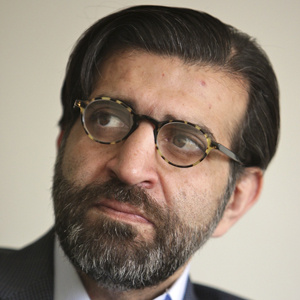New Phase of Negotiations in Istanbul
By Sadegh Kharrazi.

The negotiation on the Iranian nuclear file is entering a new phase. In the aftermath of the Geneva meetings between Iran and 5+1 countries earlier this month, both sides considered the talks as positive, agreeing to meet again in Istanbul in late January though responding to their constituencies, they reiterated, once again, their classical positions on the nuclear issue. While Iran declared victory in the talks, praising its chief nuclear negotiator for not giving up Iran’s rights under NPT, the Western countries, particularly the U.S., resorted to threats and sanctions in continuation of their carrot and stick policy with regard the Iranian nuclear program.
Notwithstanding the uncompromising positions of the two sides, the fact that it was agreed to hold the next round of talks in Istanbul is a promising development. Furthermore, as recently as this week, the presidents of Iran and the United States made some encouraging comments about the upcoming Istanbul talks. Mr. Ahmadinejad said in a televised interview that “The recent talks in Geneva contained positive elements and I hope that in continuation of the talks we can arrive at a solution based on cooperation.” He went on to say that “It is high time that the policy of confrontation is replaced by a policy of cooperation and we are completely ready for that which is beneficial for all.” Ahmadinejad’s positive comments and assessment of the Geneva talks are matched with Obama’s recent comments in an interview with Turkish paper Hurriyet in which he said “There are ways we can move forward, but all parties must be prepared to take constructive approaches.”
Obama’s emphasis that all parties, not only Iran, should take the extra mile to come to a positive conclusion in Istanbul-- unprecedented in the history of Iranian nuclear negotiation-- is a hopeful sign which should be match by deeds in order to be considered credible. It is not surprising, then, that a few days before the Geneva talks, speaking in an interview with BBC; Hillary Clinton opened the possibility for Iran to be able to enrich uranium for peaceful purposes in Iran. She said that “They can enrich uranium at some future date once they have demonstrated that they can do so in a responsible manner in accordance international obligations.”
Clinton has already been under fire by the hawks in Washington for being soft on Iran. Recently a number of well-known senators wrote a letter to Obama urging him not to accept any enrichment activity inside Iran. They said that "It is critical that the United States and our partners make clear that, given the government of Iran’s patterns of deception and non-cooperation, its government cannot be permitted to maintain any enrichment or reprocessing activities on its territory for the foreseeable future,"
The recent media reports that the U.S. is working with European countries to adopt further unilateral sanctions against Iran is counterproductive, undermining the calm atmosphere needed before the Istanbul meeting with possible effects on the talks as well. However, some experts believe that these sanctions are also designed to be used for internal consumption.
Now the question is whether the new U.S. approach towards the negotiation with Iran on the nuclear issue is a calculated shift in the U.S. position or is it another tactic being employed by the Obama Administration to bring Iran back to the negotiating table? The answer is not clear at this juncture. The passage of time will shed some lights on this tricky question. At any rate, it should be clear to all that the “zero enrichment”, promoted by the U.S. and its allies, is not a viable option anymore. It is not only against the letter and spirit of the Non-Proliferation Treaty, but also is considered as a non-starter in any meaningful negotiation. Both sides should take advantage of the next round of negotiations in Istanbul and in an atmosphere filled with seriousness and sincerity and away from threat and intimidation try to address each other’s concerns and come up with a solution acceptable to both..

